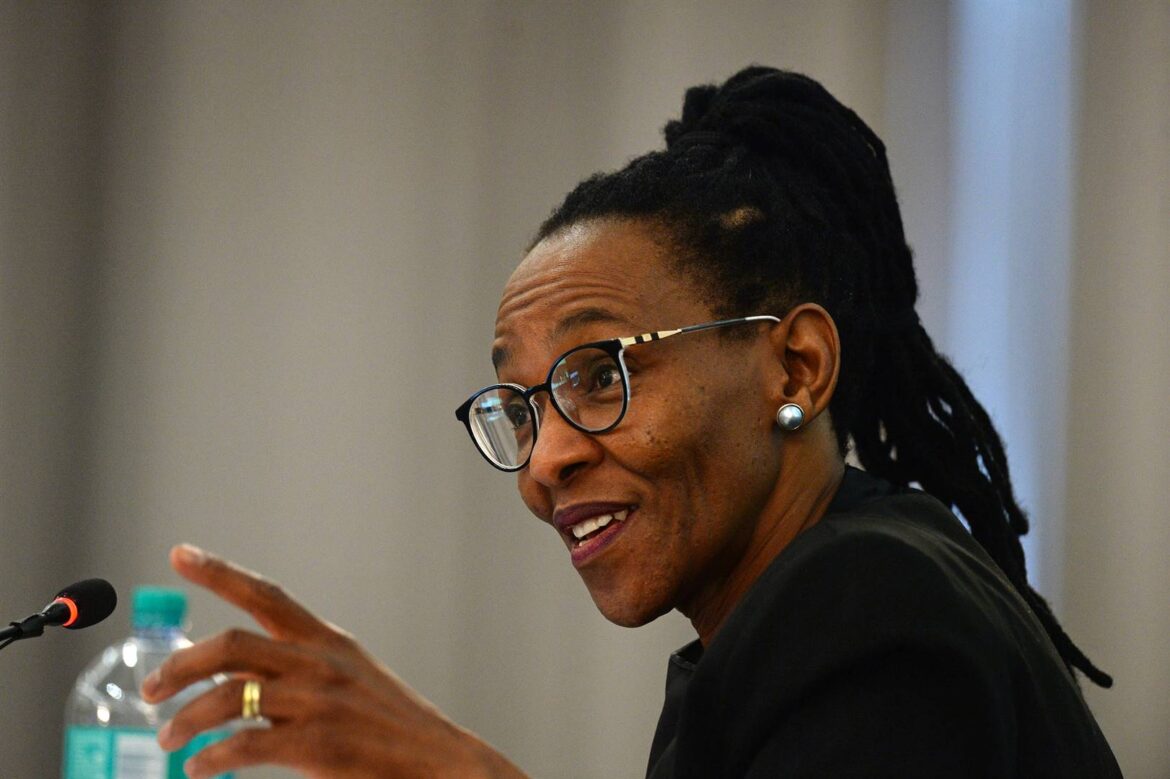South Africa’s sanguine aspirations of experiencing the leadership of Justice Mandisa Maya, as the country’s first woman Chief Justice since democracy, came to a fateful end after the Presidency announced Justice Raymond Zondo as the chosen man for the top job. This decision came as a surprise to many who had been following the Chief Justice interview proceedings closely since the Judicial Service Commission (JSC) had made recommendations for Justice Mandisa Maya to be appointed as the judiciary’s head. President Cyril Ramaphosa did not only miss an opportunity to make history; he also failed to demonstrate his commitment to gender transformation in South Africa’s judiciary.
Ironically, Zondo’s appointment was announced on the 10th of March 2022, which marked the first annual International Day of Women Judges—a day meant to promote the equal participation of women at all levels of the judiciary, according to the United Nations. The significant day was also to celebrate the progress that has been made concerning gender representation in the judiciary across the globe while raising awareness of the challenges that lie ahead. Some of those challenges are sexism and decelerating gender transformation in the judiciary.
South Africa has made notable advancements with regard to gender representation in the judiciary since the beginning of its democratic dispensation. According to lobby group Judges Matter, just over 40% of judicial positions in South Africa are occupied by women, with almost 30% of them being occupied by women of colour. Despite this, gender inequality has proven to be a custom that persists and thrives in post-Apartheid South Africa. Women are still (as Justice Maya rightfully stated) treated as though they are being done a favour by being considered for positions they are qualified to occupy. Ironically, sexism continues to rear its head in the country’s most significant institution: the judiciary. It’s incredibly alarming that an institution meant to enforce and represent a fair and equal South Africa perpetuates the discrimination it should be fighting.

According to our Constitution, the President has the ultimate decision-making power in appointing the country’s Chief Justice. However, it is almost impossible not to associate his decision with gender bias. President Ramaphosa’s complete disregard for the JSC’s recommendations doesn’t only suggest that the interview process was futile but also that he doesn’t have faith in the leadership of a woman. It also contradicts South Africa’s democratic approach for electing prospective public servants, which historically has involved public participation – in this case, the commissioners at the JSC.
Justice Raymond Zondo is indisputably experienced for the position of Chief Justice. From serving the country as Deputy Chief Justice to chairing the State Capture Commission of Inquiry, Justice Zondo has earned his stripes. However, Justice Mandisa Maya is an accomplished jurist as well. With three honorary doctorates, being the University of Mpumalanga’s first female chancellor and leading South Africa’s Supreme Court of Appeal for almost a decade, Justice Maya would have excelled in the position of Chief Justice.
The signs that Justice Maya’s road to becoming Chief Justice was going to be riddled with gender bias have been present from the beginning. During her sensationalised interview for the position at the JSC, the President Judge of the Supreme Court was subjected to subtle sexist remarks – including being asked if she thinks South Africa is ready for the role to be occupied by a woman. They asked her this question despite her extensive work history as a jurist and her impressive track record.
Unfortunately, the sexism during Justice Maya’s interview did not end there.
Advocate Dali Mpofu made an inappropriate sexual innuendo when he told the JSC that he and Justice Maya “had spent a night together.” After a chorus of laughter in the room, a discomforted Maya awkwardly laughed and asked Advocate Mpofu to further explain his statement. Mpofu then explained that he and Maya had been study partners during pupillage and had, one night, stayed up studying for an exam. At surface level, Mpofu’s statement could be dismissed as a harmless joke. However, with deeper examination and consideration that men have been known to use sexual innuendos to subdue and throw off the balance of women who seem too confident and threatening to them, the statement proves to be malicious.
The President has offered Justice Mandisa Maya a consolation prize by appointing her as Deputy Chief Justice (an offer she accepted and won), which is also a significant role in the judiciary. But it’s not enough. Justice Mandisa Maya, a black woman, is what the country needed to demonstrate that its gender policies were not just drafted for the sake of it.
Furthermore, the entry of women judges into spaces they have historically been excluded from is a positive step in the direction of judiciaries being perceived as inclusive. Women’s representation in the judiciary is an opportunity for the justice system to assure South African citizens that equity and equality are at the heart of our Constitution. President Cyril Ramaphosa misused that symbolic opportunity.



